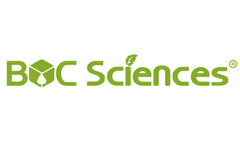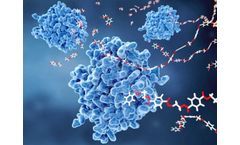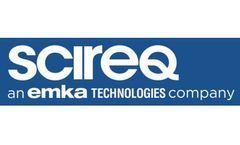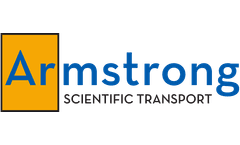Medical Science Articles & Analysis: Older
124 articles found
On Wednesday, 27th November, the National Institute for Health and Care Excellence (NICE), the British Thoracic Society (BTS), and the Scottish Intercollegiate Guidelines Network (SIGN) updated and published a joint guideline on asthma diagnosis, monitoring, and chronic asthma management. Streamlining asthma management BTS/SIGN and NICE published guidelines independent of each other. To align ...
Human umbilical cord cells, particularly those found in Wharton’s jelly, have emerged as a focal point in regenerative medicine and cellular therapy. Wharton’s jelly is a gelatinous substance that surrounds the umbilical cord’s blood vessels, providing structural support and protection. It is rich in mesenchymal stem cells (MSCs), which are known for their unique regenerative ...
HCEC-12 is a well-established human corneal epithelial cell line derived from human corneal tissue. It plays a crucial role in ocular research, particularly for studies related to corneal physiology, wound healing, and the pathogenesis of various ocular diseases. This article delves into the characteristics, applications, and significance of the HCEC-12 cell line in biological and medical ...
Moreover, the integration of synthetic biology with peptide science is paving the way for designing peptides with novel structures and functions. ...
Technological advancements and innovative research have continuously led to the discovery and development of new methodologies in the field of biological and medical sciences. One such breakthrough discovery is bacterial genome editing, which opens a new world of opportunities and challenges in the field of biotechnology and genomics. ...
Human brain has approximately 171 billion cells, of which slightly more than half (approximately 86 billion) are nerve cells. These 86 billion nerve cells are a diverse cell population with hundreds of specialized types and functions, but all originate from three neural cell lineages--neurons, oligodendrocytes and astrocytes. All three cell lineages originate from a pool of neural stem and ...
The scientific realm of biomedicine has witnessed extraordinary evolution in recent years, particularly in the spheres of cell and gene therapies. These therapies have radically revamped disease treatment modalities, transcending traditional approaches to become some of the most groundbreaking advancements in modern healthcare. This article aims to engage in an incisive analysis of cell and gene ...
Glycosylation impurities are a type of chemical commonly encountered in biochemical, medical, and pharmaceutical chemistry research. The presence of these impurities can affect the efficacy, safety, and stability of drugs. Therefore, the detection and analysis of glycosylation impurities are crucial in ensuring the quality and therapeutic effectiveness of pharmaceutical products.What are ...
What is Gene Knockout Technology?Gene knockout (Gene Knockout) is a molecular biology technique that allows researchers to block or shut off the function of a specific gene to study its role and importance. This technique is achieved by introducing mutations into the gene, making it impossible for the gene to express properly or produce functional proteins.Applications of Gene Knockout ...
FeNO Testing in Asthma Care Although airway eosinophilic inflammation is a key characteristic of asthma, there are few methods available to measure it. This inflammation can be assessed by measuring eosinophils and eosinophilic cationic protein (ECP) in sputum or by measuring ECP in blood samples1. However, these methods are considered time-consuming, expensive, and not readily available. For ...
As the demand for advanced materials with tailored properties continues to grow in applications ranging from tissue engineering to medical devices, researchers are increasingly turning to the power of AI to accelerate biomaterials development and optimization. ...
Metabolomics is developing rapidly. In medical science research, it is hoped that analysis to identify abnormal metabolic pathways and characteristic biomarkers closely related to diseases will provide a basis for further elucidation of disease pathogenesis. ...
The key to understanding their significance is to acknowledge the role they play in our body – supporting the healthy structure and function of human cells, tissues, and organs. The science doesn't stop at amino acids. These protein precursors link together to form chains known as peptides. ...
In the grand symphony of life, there are countless unsung heroes quietly orchestrating the countless chemical reactions that sustain our world. These remarkable biomolecules, known as enzymes, are the true MVPs (Most Valuable Proteins) that keep our planet thriving. Enzymes are nature's own specialized workforce, each one tailored to catalyze a specific reaction. Imagine a team of highly ...
Rare diseases, also known as orphan diseases, affect a small percentage of the population, making them particularly challenging to diagnose and treat. However, thanks to advancements in medical research and technology, significant progress has been made in the field of rare disease research, from developing accurate diagnostic tools to making effective small-molecule drugs. One of the biggest ...
Introduction RNA Lipid Nanoparticles (LNP) technology has rapidly gained prominence in the health and scientific domain, primarily due to its significant role in carrying the mRNA of the COVID-19 vaccines developed by Pfizer/BioNTech and Moderna. Yet, the potential of this technology spans beyond the confines of these vaccines or even the health industry. As research into premade RNA-LNP products ...
Technological advancements and innovative research have continuously led to the discovery and development of new methodologies in the field of biological and medical sciences. One such breakthrough discovery is bacterial genome editing, which opens a new world of opportunities and challenges in the field of biotechnology and genomics. ...
Evaluating the stress related effects of various restraint methods in rodents Any restraining device used in an inhalation exposure set-up will be, by definition, restricting the subject’s ability to move. For nose-only inhalation set-ups, typical restraints are rigid, fully enclosed and include a metal or acrylic plunger forcing the subject forward and preventing the subject from ...
Medical Equipment Relocation Welcome to Armstrong Scientific, your trusted partner in seamless and reliable medical equipment moving. With years of experience and a proven track record, we take pride in providing top-notch medical equipment relocation services to healthcare facilities, research centers, and medical institutions across the country. Our dedicated team of professionals is committed ...
Bio-ink is a revolutionary material that is rapidly changing the fields of medicine, tissue engineering, and even bioprinting food. This fascinating substance is essentially a type of ink made from living cells and other biocompatible materials that can be used to 3D print complex biological structures. What is Bio-Ink Made Of? The composition of bio-ink can vary depending on the desired ...
ByMatexcel















